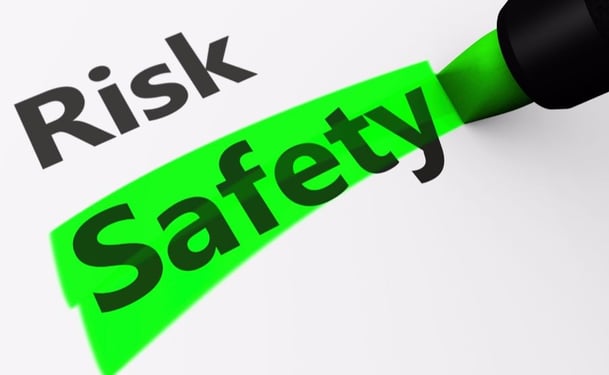Although vasectomy reversal complications are rare, any surgery carries some degree of risk. Because vasectomy reversal is a longer and more complicated procedure than an original vasectomy, it has a greater chance of side effects.
In spite of the low risk factor, it is important to be aware of the potential complications associated with a vasectomy reversal. Before undergoing the surgery, ask a physician to go over these.
Most common vasectomy reversal complications
Complications following vasectomy reversal are rare, but the most common include bleeding, infection, and discomfort following the procedure. There is also the risk of the vasectomy reversal failing. Although most surgeons' success rates are over 90 percent, not all reversal surgeries are successful.
Anesthesia: Since a vasectomy reversal is a surgery that is performed under general anesthesia, patients must be cleared medically prior to the surgery to make sure they are candidates to be put to sleep. Anesthesia-related complications are very rare, but can include reaction to the anesthetic, breathing trouble, heart problems, and difficulty with positioning.
Allergic reaction: Although rare, this is usually a reaction to the local anesthetic, and can result in itching or hives.
Anti-sperm antibodies: After a vasectomy, sperm that are absorbed by the body may result in the formation of antibodies. These proteins will not harm the body, but in rare instances, they may adversely affect the chance of getting pregnant naturally following a vasectomy reversal. It is uncommon that anti-sperm antibodies cause this problem, but when they do, simple treatments with anti-inflammatories or low-dose steroids like prednisone can reduce anti-sperm antibodies. When medical treatment fails, assisted reproduction methods (such as in vitro fertilization) can make this less of an issue.
Bleeding: Internal bleeding around the surgery site can result in swelling or bruising of the skin on the scrotum or penis. In addition, bleeding inside the scrotum can lead to swelling caused by the pooling of blood (hematoma - see below). Report any unusual swelling in the scrotum to a doctor.
Constipation: Straining during a bowel movement, or no movement at all, are potential side effects of anesthesia and the post-surgical narcotic pain medications prescribed by a doctor.
Decreased sperm count: After a vasectomy reversal, your sperm count might be lower than it was before the original vasectomy. This may be caused by scar tissue blocking the sperm, or the reaction of the body's immune system to the presence of sperm. However, around 92 percent of vasectomy reversals end with the return of sperm to the semen.
Fluid buildup: Fluid can build up around the testicle and cause swelling (hydrocele). This may diminish on its own, but may sometimes need to be removed through surgery or with a needle. Check with a doctor if there is any unusual swelling.
General aches and pain: Aches and pain after a vasectomy reversal are some of the more common side effects, and are usually a normal reaction to anesthesia or the surgery itself.
Headache: Headaches can occur in reaction to general anesthesia and the physical stress of surgery.
Hematoma: Pooled blood can be caused by bleeding inside the scrotum. The risk of this rare complication can be decreased by following the doctor's directions to rest following surgery. Report any unusual scrotal swelling to the surgeon.
Infections: Infections at the scrotal incision site are not common, but infections are a potential risk with any surgery. Such infections respond favorably to antibiotic treatment, antimicrobial creams, and/or hot baths.
Long-term testicular pain: A small number of men experience long-term pain (more than three months) in the area of the scrotum or testicles after a reversal.
Nausea: Nausea and vomiting are usually a short-term reaction to general anesthesia.
Pain: After vasectomy reversal, you should be prepared for short-term pain in the scrotal area. For most men, the pain is not severe and generally diminishes within a few days to a week after the procedure. The pain can be treated with prescription narcotics or over-the-counter pain medications. The doctor, however, may ask the patient to avoid pain relievers (such as ibuprofen and aspirin) for the first 48 hours after the surgery to reduce the risk of bleeding. Ice packs can also sooth the scrotal area.
Sperm granuloma: If sperm leak into the scrotum, the immune system can react to the sperm and gradually form an inflamed mass. These are rarely painful or uncomfortable, but can be an indication that the vasectomy reversal was not successful.
Testicular atrophy: Although rare, an injury to the blood supply of the testicle can result in permanent damage to that testicle. This can lead to scarring, or diminished sperm and testosterone production. In general, the other testicle produces enough sperm and testosterone to compensate.
Unrelated conditions:
- Prostate and testicular cancer: Vasectomies and vasectomy reversals do not increase the risk of testicular or prostate cancer. (See Is there a Link Between Vasectomy and Disease for more information.)
- Sexual difficulties: There is no physiological reason that a vasectomy or a vasectomy reversal should affect the patient's sex drive, or their ability to have sex or an erection. If these issues arise, talk to a doctor. (See Sex After a Vasectomy for more information.)
Reviewed December 11, 2012, by Karen Elizabeth Boyle, MD - Urologist
References:
Jokelainen OS, Rintala E, Koskimies AI, et al. Vasovasostomy--a 15-year experience. Scand J Urol Nephrol. 2001; 35(2):132-5.
van Dongen J, Tekle FB, van Roijen JH. Pregnancy rate after vasectomy reversal in a contemporary series: influence of smoking, semen quality and post-surgical use of assisted reproductive techniques. BJU Int. 2012 Aug;110(4):562-7.


